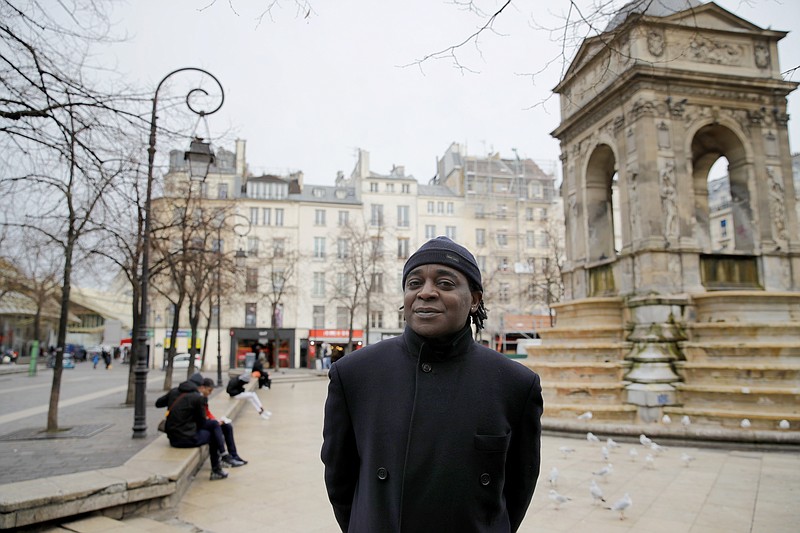PARIS -- Three leading rights organizations joined with grassroots groups Wednesday to launch France's first class-action lawsuit against the French government, alleging systemic discrimination by police officers carrying out identity checks.
The nonprofit organizations, including Human Rights Watch, Amnesty International and Open Society Justice Initiative, allege in the suit that police target Black people and people of Arab descent in choosing who to stop and check, and say the practice is alienating those populations and is a danger to society.
The organizations want deep changes to law enforcement, including a change in the article in the penal code that governs the identification check. They seek no monetary damages.
Prime Minister Jean Castex and France's interior and justice ministers were served formal legal notice of the demands in a 145-page document that included witness accounts, studies and demands to ensure there's no racial profiling in police checks.
Omer Mas Capitolin, a founder of Community House for Supportive Development, a grassroots nonprofit organization taking part in the legal action, said such checks are part of daily life for many people of color.
"When you're always checked, it lowers your self-esteem," and you become a "second-class citizen," said Mas Capitolin, whose Paris group works with youths often stopped for checks that he said can end up in a police station.
The "victims are afraid to file complaints in this country even if they know what happened isn't normal," he said, because they fear fallout from neighborhood police.
He called it a "mechanical reflex" for police to stop non-whites, a practice he said is damaging to the person being checked and ultimately to relations between officers and the public they are expected to protect.
Mas Capitolin said the case of George Floyd, the Black American who died last year in Minneapolis while he was being arrested by a white police officer, is becoming a catalyst for change in France.
Police are of another mind. For Stanislas Gaudon, general delegate for Alliance Police Union, the claim that police discriminate in identification checks drew a big "no."
"You know, police officers don't get up in the morning thinking 'I'm going to go out and check the IDs of people of Arab descent or Black people, or maybe Asian people or European people.' No," he said in an interview.
"No, police are not discriminating, and no, the police don't do racial profiling," Gaudon added.
The lead lawyer in the case, Antoine Lyon-Caen, stressed that the legal action does not target individual officers but "the system itself that generates, by its rules, habits, culture, a discriminatory practice."
"Since the shortcomings of the state [concern] a systemic practice, the response, the reactions, the remedies, the measures must be systemic," Lyon-Caen said at a news conference with the nonprofit organizations taking action.
Major changes could be of service to police, he added, helping rebuild their ties with the public.
Serving notice is the obligatory first step in a two-stage lawsuit process in a French class-action suit. The law gives French authorities four months to talk with the nonprofit organizations about how they can meet the demands. If the parties behind the lawsuit are left unsatisfied, the case will go to court, according to one of the lawyers, Slim Ben Achour.
"It's revolutionary, because we're going to speak for hundreds of thousands, even a million people." Ben Achour said in a phone interview.
The abuse of identity checks has served for many in France as emblematic of broader alleged racism within police ranks, with critics claiming that misconduct has been left unchecked or whitewashed by authorities.
Police representatives say officers themselves feel under attack when they show up in suburban housing projects. During a spate of confrontational incidents, officers became trapped and had fireworks and other objects thrown at them.
Among a list of reforms sought by the nonprofits is a change in the penal code to demand accountability in stops, making them visible with a record of the action and a receipt for the person stopped.
Among other demands, the organizations want an end to the longstanding practice of gauging police performance by numbers of tickets issued or arrests made, arguing that the benchmarks can encourage baseless identity checks.
The lawsuit features some 50 witnesses, including police officers and people allegedly subjected to abusive checks.
Information for this article was contributed by Alex Turnbull and Colleen Long of The Associated Press.


